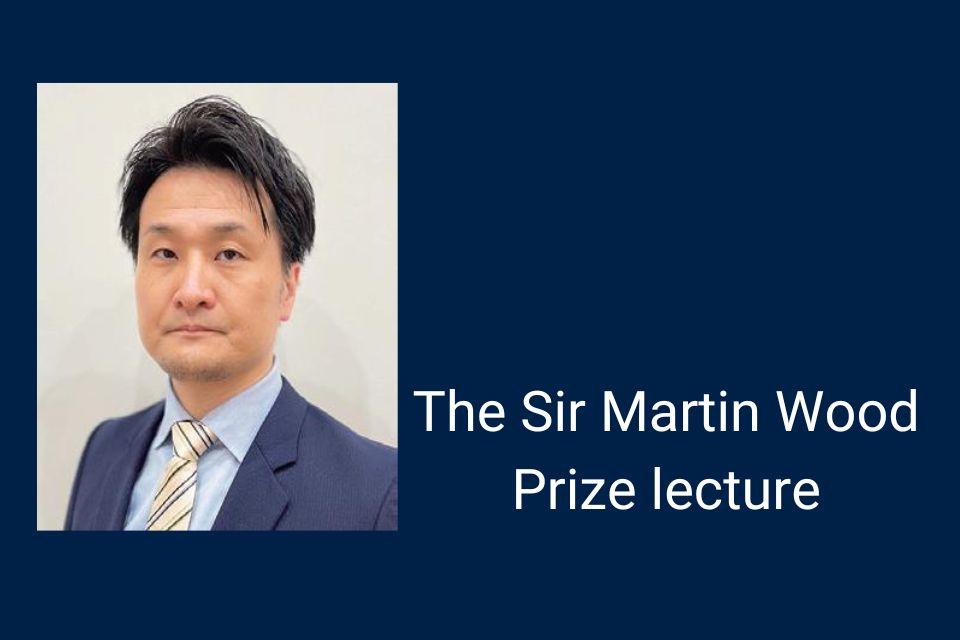Dr Genki Kobayashi, RIKEN Japan
Creation of hydride super-ionic conductors
Join us for The Sir Martin Wood Prize Lecture 2024 that will be given by Dr Genki Kobayashi (RIKEN, Japan), hosted by Professor Arzhang Ardavan and Tony Ford (Oxford Instruments). Also available via Zoom: https://zoom.us/j/98945329384
Abstract
Hydrogen can become a positively charged proton (H+) to a negatively charged hydride ion (H–) through the exchange of electrons in the 1s orbital. The charge flexibility allows hydrogen to exist in a wide variety of materials while changing its charge and size; however, H– is usually stable only when it forms hydrides with alkali metals and alkaline earth metals with low electronegativity. In fact, the diffusion of hydrogen in solids in fuel cells, hydrogen sensors, and hydrogen storage alloys, which are fundamental techniques for hydrogen energy utilization, has mostly been related to the diffusion of H+ or atomic hydrogen (H0), and H– has not been recognized as a movable ion for a long time. In the 2000s, it was found that significant concentrations of H– could be introduced into oxides, and mixed-anion compounds, in which H– could be relatively stable began to be developed. The main aim was to explore new physical properties and catalytic functions by utilizing the electron-donating properties of H–. On the other hand, we considered H– to be a promising charge carrier for electrochemical devices including batteries, fuel cells, and electrolysis cells because hydride ions have not only properties suitable for fast ionic conduction, such as monovalent, moderate ionic radius, and high polarizability, but also a strong reducing ability (–2.25 V vs. SHE). To create electrochemical devices with a new operation principle based on the above-mentioned features of H–, we have been developing H– conductors, which had been practically unexplored.
By adding alkali metals and alkaline earth metals with low electronegativity, which can stabilize the H– charge state, to the constituent elements, we created a series of oxyhydride system, (La2–x–ySrx+y)LiH1–x+yO3–y, that shows pure H– conductivity without any contribution from electron conduction (transporter number tH = 1). As a result of expanding the material system of H– conductors based on this achievement, we achieved the creation of Ba1.75LiH2.7O0.9 (BLHO), exhibiting high H– conductivity above 10–2 S·cm–1 through phase transition. BLHO is 20% deficient in H– within the H– diffusion layer, and at room temperature, this defect orders to form a superlattice. With increasing temperature, the long-range ordering of the H– defects disappeared, which triggered a nearly temperature-independent high conductivity above 10–2 S·cm–1. This conduction behaviour is unique to super-ionic conductors in which mobile ions are in collective motion, showing that BLHO is a H– superionic conductor. Furthermore, we recently demonstrated that elemental substitution into BLHO effectively lowers the phase transition temperature and improves conductivity in the low-temperature region. There remains room for further performance improvements, such as optimization of the substituted species and their concentrations and multi-element substitution; thus, stabilization of the highly conductive phase of BLHO would be a principal guideline for developing hydride ion conductors.
Dr Kobayashi
Dr Kobayashi was awarded the Sir Martin Wood Prize at the Millennium Science Forum which took place in November 2023. The Millennium Science Forum was established in 1998 to promote scientific exchange between Britain and Japan and recognize the work of outstanding young Japanese researchers. The prize is named after Sir Martin Wood, founder of Oxford Instruments.
The talk will be followed by a coffee reception. Please book soon to avoid disappointment, using the link below.
About The Sir Martin Wood Prize
Dr Genki Kobayashi, Chief Scientist, Solid State Chemistry Laboratory, as the winner of the 2023 Sir Martin Wood Prize. Dr Kobayashi was awarded the prize for Creation of hydride super-ionic conductors.
The Millennium Science Forum was established in 1998 to promote scientific exchange between Britain and Japan and award the Sir Martin Wood Prize to a young researcher from a Japanese University or research institute who has performed outstanding research in the area of condensed matter science. The prize is named after Sir Martin Wood, Founder and Honorary President of Oxford Instruments plc.

